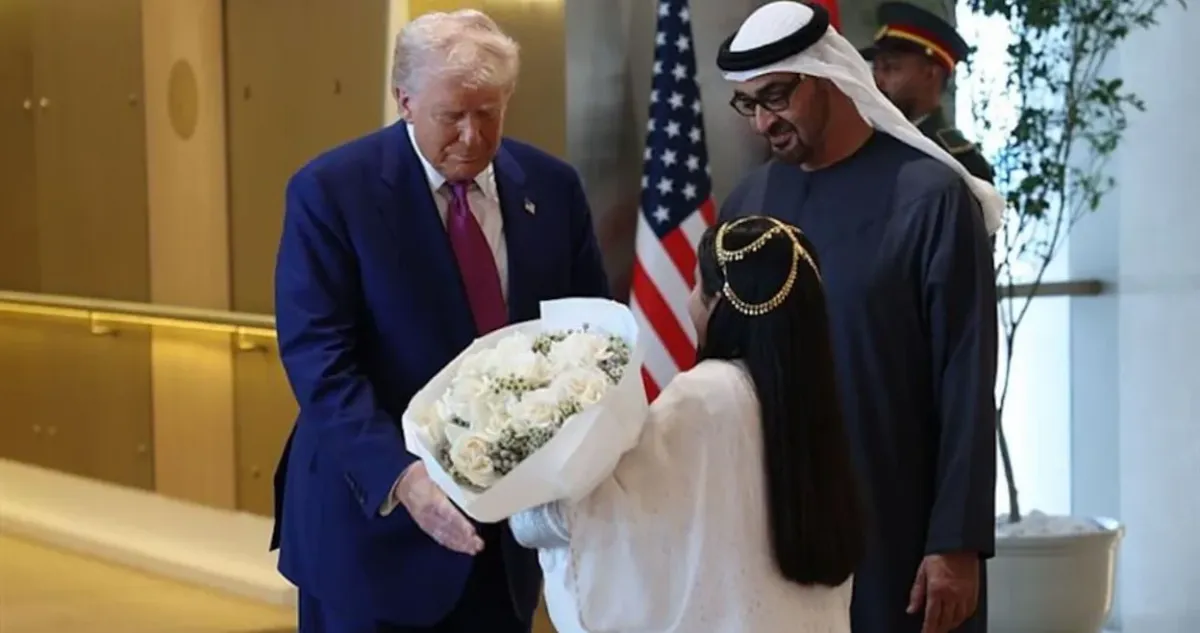Trump Becomes First U.S. President in Nearly 30 Years to Visit the UAE
President Donald Trump's visit to the UAE underscores the country's significant influence in Middle Eastern geopolitics, featuring talks on defense agreements and strategic partnerships with the United States.

President Donald Trump is set to land in the United Arab Emirates (UAE) on Thursday, marking a historic visit as the first by a U.S. president to the country in nearly three decades, following President George W. Bush’s trip in 2008.
The UAE stop concludes Trump’s whirlwind Middle East tour this week, which has already included high-profile business agreements in Saudi Arabia and Qatar. During his time in the region, Trump has highlighted new economic partnerships and defense deals that underline the continuing strategic importance of the Gulf states to Washington.
Major Investment and Defense Deals
In March, the UAE committed to a landmark $1.4 trillion investment framework with the United States, to be deployed over the next ten years. This ambitious plan involves collaboration in AI infrastructure, semiconductor production, energy, and American manufacturing. Notably, the investment includes a proposal to nearly double U.S. aluminum output with the construction of a new smelter — the first such facility in 35 years.
On the eve of Trump’s arrival in Abu Dhabi, the State Department approved a $1.4 billion sale of CH-47 F Chinook helicopters and F-16 fighter jet parts to the UAE, underscoring deepening U.S.-Emirati security ties. However, the deal faces potential hurdles in Congress, where lawmakers have voiced concerns about possible conflicts of interest due to Trump’s personal business connections in the region. These include substantial investments in Trump-linked ventures, such as a $2 billion crypto investment by a UAE-backed firm.
Former national security advisor John Hannah noted the possibility of additional announcements during Trump's visit. "If I was a betting person, I’d bet that the Emiratis almost certainly kept some things in reserve for President Trump’s actual visit that can be announced when he’s on the ground in Abu Dhabi," Hannah said, expressing expectations for further agreements or clarifications on previously announced deals.
Geopolitical Context and Strategic Rebalancing
The UAE has emerged as a regional leader in areas such as artificial intelligence, semiconductor technology, and space exploration. At the same time, its appetite for advanced weaponry remains robust, making it a vital partner for the U.S.
Trump’s business interests in luxury real estate, resorts, golf courses, and cryptocurrency projects throughout the Middle East have drawn fresh scrutiny to the political and personal dimensions of this trip. Despite these connections, the strategic relationship between Washington and Abu Dhabi carries weight for both sides.
- Saudi Arabia and Qatar have played pivotal roles in U.S. efforts regarding Russia’s war in Ukraine and hostage negotiations in the Gaza Strip.
- Although geopolitical crises were not the focus of Trump’s earlier stops, discussions with the UAE are expected to address broader issues.
- The UAE’s dual role as an ally with normalized ties to Israel and as a nation maintaining relationships with China, Russia, and Iran provides a unique diplomatic platform for the U.S.
The UAE has lately distanced itself from Trump’s prior “riviera plans” for the region, favoring alternative reconstruction efforts in Egypt and championing a two-state solution for the Israel-Palestinian conflict. The Emirati government has also voiced opposition to Israeli military operations in the Gaza Strip, potentially shaping presidential discussions.
“As everywhere on this trip, the headlines will likely be dominated by the dollar signs and deal-making,” Hannah explained. “But I’m personally most interested in the geopolitical angle of trying to reset the U.S.-Emirati strategic partnership, especially in the context of America’s great power competition with China and to a lesser extent Russia, and regionally with Iran.”
Hannah emphasized that Trump’s visit signals a renewed American commitment to supporting the UAE’s stability and success in a volatile region. “With a country as influential and resource-rich as the UAE, correcting that unhelpful perception and putting the strategic relationship back on a much more positive dynamic is an important goal,” he said.
As Trump prepares to touch down in Abu Dhabi, all eyes will be on the potential for fresh trade announcements, geopolitical positioning, and indications of how the U.S. plans to navigate its complex web of alliances across the Middle East.
